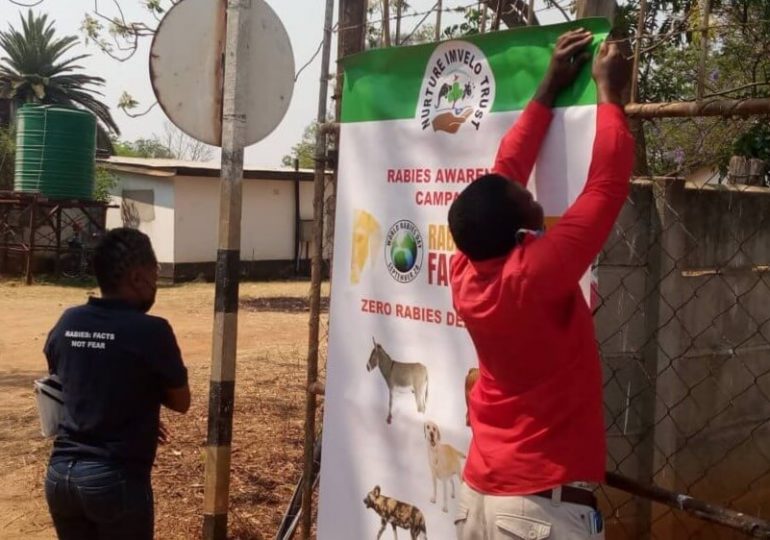Animal advocacy requires more than just passion and goodwill. It takes resources and thoughtful strategic planning to figure out how to make the world a better place for animals, and grants are one crucial avenue through which advocates can obtain the funds needed to execute their plans and drive change. In this blog post, we will explore the importance of grants for animal advocates, discussing how they work, why they are beneficial, and how you can apply for a grant.
What Are Grants?
Grants are financial donations awarded by grantmakers—usually government agencies, corporations, or foundations—to support the work of an organization or individual.1 They do not need to be repaid. Some grants are restricted to funding specific projects, e.g., conducting research into animal welfare or expanding vegan options in schools. On the other hand, unrestricted grants can be used how the charity sees fit, e.g., for operational expenses, such as staff salaries.
How Do Grants Work?
Grants are usually awarded through a competitive process,2 the exact details of which are specific to each funder. (See Movement Grants: Process and Timeline for an example of what a grantmaking process can look like.) In general, grant-seekers must first identify their goals and financial needs. They must then craft a compelling proposal for what they plan to accomplish using additional funding. After submitting the proposal during an open call for applications, a panel of experts or grantors assesses each applicant’s proposal and selects the most promising projects. Several grantmakers hold multiple funding rounds per year, so even if your application is unsuccessful, you may be eligible to reapply for the next round of grants.
Why Are Grants Important?
Grants help people and organizations carry out their ideas for helping a particular cause. For animal advocates, grants provide impactful opportunities to execute projects that would have otherwise been impossible without financial aid. By injecting funding directly into the animal advocacy movement, grants enable more initiatives to be tested in important cause areas, increasing the body of evidence for what interventions work best to help animals. Additionally, grants can aid in boosting the visibility, stability, and credibility of new organizations.3
Benefits of Grants You Should Know
Advancing Animal Advocacy Through Grants
Grant funding is crucial for advancing the global animal advocacy movement, especially for species and regions with limited support for animal advocacy initiatives. With their respective Movement Grants from ACE, Nurture Imvelo Trust and Shangano Arts Trust were both able to raise the profile of animal advocacy and veganism in Zimbabwe. With a $7,000 grant to run a campaign about caged hens, Nurture Imvelo Trust raised awareness of the effects of battery cages on hen welfare, created educational animations, hosted two radio programs, promoted 17 cage-free farmers, and met with animal welfare policymakers to determine effective lobbying strategies for better animal welfare laws. Shangano Arts Trust used its $5,000 grant to run educational workshops for 1,000 women and 4,000 children in Zimbabwe and introduce plant-based diets in schools.
Providing Crucial Financial Support
Animal advocacy organizations often operate on limited budgets, making financial support and stability a critical component of their success. Depending on the funder’s award limit and the scope of the applicant’s project, grants for animal charities can range from hundreds to tens of thousands of dollars, making them an impactful funding source for nonprofits of all sizes to expand their reach, hire qualified staff, and invest in necessary resources to effectively carry out their missions. In 2022, Shrimp Welfare Project (SWP) received a $40,000 Movement Grant to put toward staff costs, allowing them to jumpstart their work to improve the welfare of farmed shrimps. By 2023, the organization had commenced producer and corporate outreach work on shrimp welfare in India and increased the visibility of farmed shrimp welfare as a neglected yet tractable issue. Shrimp Welfare Project is now one of ACE’s Recommended Charities, ensuring that they will receive biannual grants from the Recommended Charity Fund through 2025.
Amplifying the Impact of Initiatives
By providing financial backing, grants amplify the impact of animal advocacy initiatives. A well-funded project has the potential to reach more communities, save more lives, and influence public perception, thereby creating a ripple effect of positive change that extends far beyond the initial scope of the initiative. For example, ACE granted Sentience Politics $25,000 to support their campaign to ban factory farming in Switzerland, which was put to a public vote in 2022. The campaign was featured in billboards, newspaper ads, public transport, and post offices. They mobilized over 1,400 volunteers to accelerate its reach and received media coverage in 800 outlets, resulting in 1.06 million voters (37.1%) saying “yes” to the ban. Although the ban did not pass this time, the public support was significant and encouraging for future campaigns.
The Role of Grants in Fostering New Initiatives
Fostering Innovation in Animal Welfare
Grants provide a platform for visionary projects that push the boundaries of conventional animal advocacy, encouraging organizations to think creatively and develop innovative solutions that lead to more effective and sustainable outcomes for animals. Animal Ask, which received a $40,000 ACE Movement Grant to support the costs of a new researcher in 2022, provides organizations with in-depth research to help them design and implement their campaigns as effectively as possible. Their research has already helped identify the most promising ways to approach various animal advocacy goals, and their consulting services have supported numerous animal charities in creating campaigns that are likely to help the most animals.
Promoting Research and Technological Advances
Whether it’s developing new vegan products, researching ways to help farmed and wild animals, or revamping the food industry to reduce animal suffering, grants facilitate research and technological advancements that can revolutionize the way we interact with animals and reduce the demand for animal products. In 2021, ACE granted Cellular Agriculture Australia (CAA) $20,000 to help increase the supply of commercially competitive, sustainable, and ethical cell-cultured products in Australia. With help from their grant, CAA published research papers in Food Australia, launched Australia’s first online course on cellular agriculture, and held a session at the Australian Institute of Food Science and Technology’s annual conference to over 300 registrants across 90 food companies and research institutes.
Encouraging Organizational Collaboration
Grants often require collaboration between different organizations, fostering a sense of community and shared purpose within the animal advocacy space. World Day for the End of Fishing (WoDEF) works with partner organizations year-round to abolish fishing and the farming of aquatic animals, including crustaceans and cephalopods. They are best known for their awareness day, also named World Day for the End of Fishing. WoDEF’s first Movement Grant enabled them to hire their first staff, while their second allowed them to grow their reach even further and achieve a new record of organizations participating in the awareness day. This collaborative approach enables the pooling of resources, expertise, and ideas, resulting in more comprehensive and impactful initiatives.
How Can I Apply for a Grant?
There are many important steps to take when applying for a grant.
Identify your goals: What is it that you want to accomplish, and why is it important? What work have you already done, and what resources do you need to continue?
Research opportunities: Grant programs are highly competitive. Research available opportunities, consider the grantmakers’ objectives, and look into projects they have funded in the past to determine if you’re a good fit.
Craft a compelling proposal: Put your plan into words. Some organizations choose to hire grant writers to help them draft their proposals and submit their applications per the grantmaker’s guidelines.
Apply to Movement Grants
Movement Grants is our grant program dedicated to building and strengthening the global animal advocacy movement through grants. We prioritize supporting initiatives that use novel interventions, target large numbers of animals, and operate in regions that are underrepresented in animal advocacy. By supporting a wide variety of organizations, we also provide new evidence about what interventions work best to help animals.
Applications for Movement Grants are open from February 19 through March 17, 2024. Donations to Movement Grants will be distributed in June and July 2024 to promising projects around the globe working to reduce animal suffering.
Donate to Movement Grants
You don’t need to run your own organization to support the growth of the animal advocacy movement. By donating to Movement Grants, you can help fund promising projects working around the world to reduce animal suffering.
Donate to Movement Grants today.
The post Why Grants Are Important: The Benefits of Grants Explained appeared first on the Animal Charity Evaluators blog.
Leave a comment









